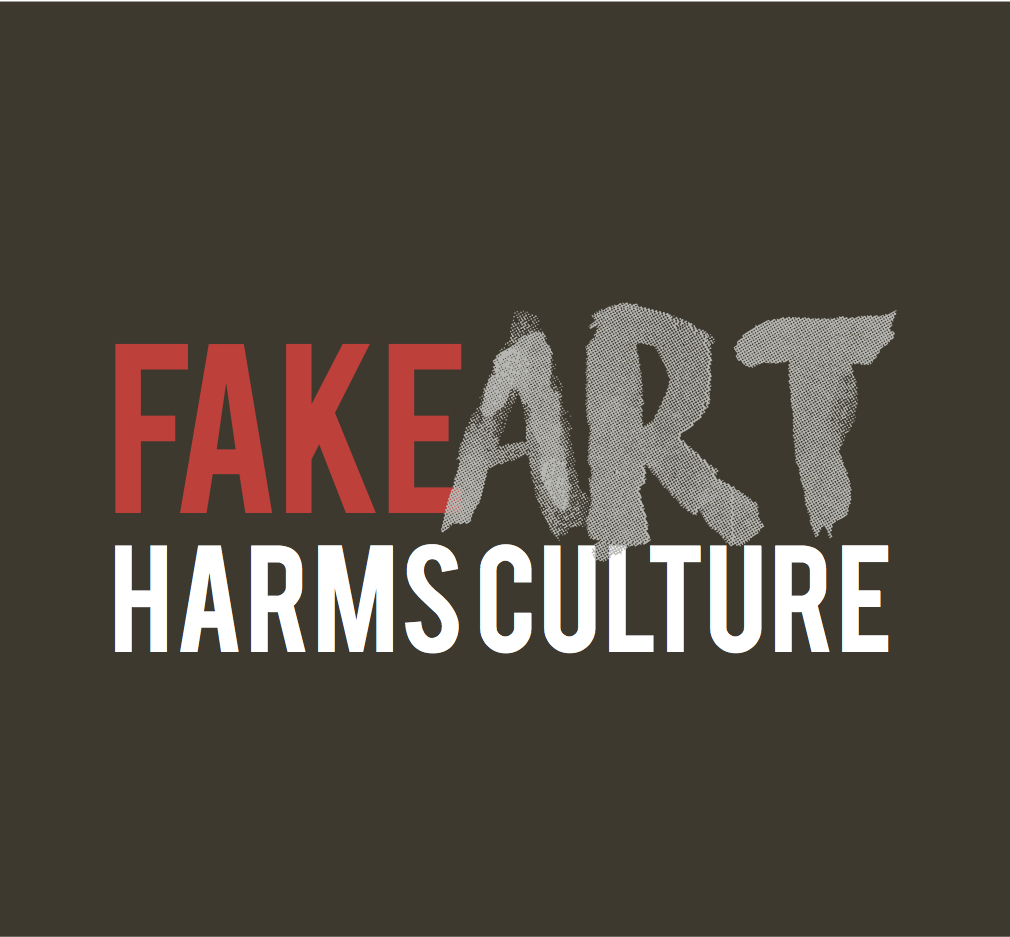Fake Art Harms Culture: our latest submission

Earlier this month, Arts Law, the Copyright Agency and the Indigenous Art Code submitted a second joint submission to the Productivity Commission’s study into the market for Aboriginal and Torres Strait Islander visual arts and crafts as part of the Fake Art Harms Culture campaign. The joint submission, which is yet to be published, responds to the draft findings and key recommendations of the Commission’s Draft Report and reiterates many of the proposals included in our previous joint submission to this study.
We support some of the draft findings made by the Commission, including:
- Recognising the cultural and social significance and financial benefits of Aboriginal and Torres Strait Islander visual arts and crafts
- The negative effects of inauthentic visual arts and crafts.
- The difficulties Indigenous artists face in accessing legal and support services.
In relation to the proliferation of inauthentic goods, our submission reiterates that the main causes of this problem are the current legal deficiencies of Australian intellectual property laws and consumer law. These do not prohibit the creation or sale of inauthentic Indigenous-style visual arts and crafts products. This problem is exacerbated by a lack of awareness and understanding of the harms caused by inauthentic products and an inability to distinguish authentic goods amongst consumers and retailers. We believe banning the sale of inauthentic product is necessary to protect Aboriginal and Torres Strait Islander artists and culture.
We agree with the Commission that a voluntary industry-wide labelling scheme for authentic products is unlikely to be an effective or appropriate solution to counter the proliferation of these products. In order to address the harms of inauthentic goods, the long-term focus should not be on implementing a labelling scheme or raising consumer awareness of these products, but on preventing retailers and producers from bringing these products into the market in the first place.
The report recommends labelling of inauthentic product which we do not think is an adequate solution as it ignores the harm done by inauthentic product and preferences consumer choice over cultural harm. We do not think that a mandatory labelling scheme is an adequate response to the harms caused by inauthentic product as, unlike a ban on such products, it would permit the sale of fake art and the associated harms to Aboriginal and Torres Strait Islander cultures to continue. Our view is that a permanent ban on the sale of inauthentic art should be included in the Australian Consumer Law. This should be the first step to implementing a stronger regulatory framework to protect Indigenous Cultural Intellectual Property (ICIP), followed by the subsequent introduction of standalone ICIP legislation, which requires further community consultation.
In addition our submission responds to the Commission’s findings regarding ongoing unethical conduct towards Indigenous artists and the difficulties artists can face in accessing justice and support services. We also comment on the recommendations to increase resourcing of the Indigenous Art Code and proposals for a strategic approach to building the industry workforce and strengthening the sector.
We would like to acknowledge Allens Linklaters, especially Partners Ted Hill and Andrew Wiseman and their teams, for assistance in researching and preparing initial drafts for parts of our response. Their contribution has helped shape our response relating to intellectual property law, amendments to the Australian Consumer Law, and the prospects of a mandatory code of practice for the Aboriginal and Torres Strait Islander arts and crafts market.
Our full submission is expected to be published on the official website of the Commission’s study, here: https://www.pc.gov.au/inquiries/current/indigenous-arts/submissions

